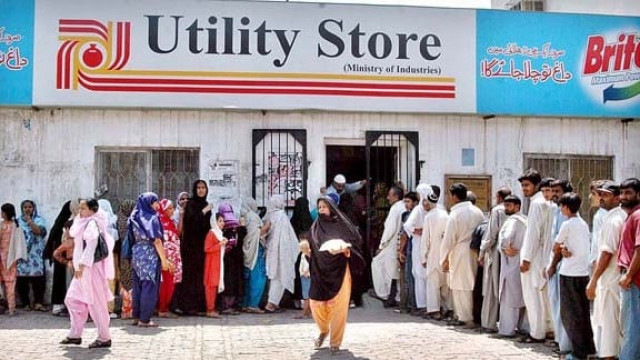Govt turns down purchase offers for utility stores
Privatisation could have turned the loss-making enterprise into profitable one.

The opportunity to possibly turn around a loss-making enterprise has been lost as the government has turned down offers of three companies willing to buy shares in the Utility Stores Corporation. This was also a chance to kick-start the privatisation process, stalled since 2008.
Hyperstar, Migros and Metro had expressed interest in acquiring 26% shares in the USC along with management control, but the government did not accept the separate offers, said Salim Mandviwalla, Minister of State and Chairman Board of Investment, while talking to the media at his office here on Wednesday.
This negates a common perception that the privatisation process has been halted due to security turmoil, political instability and deteriorating economic conditions. The government’s desire to keep public sector enterprises with itself has turned out to be a stumbling block, at least in turning around the USC.
The revelation comes just 24 hours after Finance Minister Dr Abdul Hafeez Shaikh admitted that the government’s strong footprints in public sector enterprises were one of the reasons behind economic woes of the country.
The government has given billions of rupees in subsidies to the USC, an entity marred by allegations of corruption and pilferage, to keep it afloat. There are roughly 6,000 utility stores across the country.
The last privatisation took place in November 2008 when Hazara Phosphate Fertilizer Limited was sold to Pak-American Fertilizer for Rs1.34 billion. Since then, no state-run enterprise has been sold. The USC is among 23 public sector enterprises that are on the privatisation list of the government.
Mandviwalla said the government was not keen to privatise the USC, arguing its sale might affect the core objective of the utility stores – providing subsidised food items to the poor. However, he said the government would have protected the core business of the corporation by continuing subsidies as the investors were willing to accept this.
Rules of Business
Mandviwalla is also struggling to get the Rules of Business amended in an attempt to win a more decisive role for the investment body he has been heading for the last many years. He wants decision-making powers for the BOI in matters pertaining to local and foreign investment.
He complained that the ministries are run by lobbies and these do not timely move summaries to execute projects that promise new foreign and local investments. The powers to send summaries to the Economic Coordination Committee (ECC) of the cabinet and the prime minister should be given to the BOI, he said.
On July 20, the prime minister had directed the BOI to send proposed amendments to the Rules of Business to the cabinet secretary.
To a question, Mandviwalla said Cabinet Secretary Nargis Sethi opposed amendments to the Rules of Business as she was in favour of maintaining the status quo. Now, he said, the premier would take a decision whether to amend the rules or not.
The BOI is seeking these powers on the plea that lethargy and delay in approving foreign investment projects by the ministries of finance, interior, commerce and industries hurts the investment scenario and is a major reason behind the lowest investment-to-gross domestic product (GDP) ratio in the country.
In a presentation to the premier, the BOI had said the Russian president, Turkish prime minister and Japanese foreign minister had complained about red tapism in the bureaucracy of Pakistan.
Published in The Express Tribune, November 15th, 2012.



















COMMENTS
Comments are moderated and generally will be posted if they are on-topic and not abusive.
For more information, please see our Comments FAQ